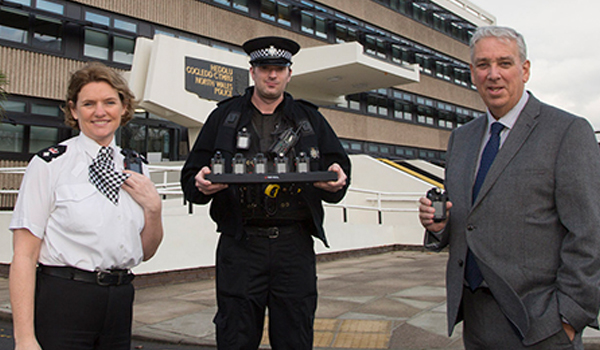New ESN provides foundation for BWV investment
The volume of data available to police forces is expected to balloon as a result of extra funding being earmarked for new technology, in particular body-worn video (BWV) cameras and, to a lesser extent, unmanned aerial vehicles.
The volume of data available to police forces is expected to balloon as a result of extra funding being earmarked for new technology, in particular body-worn video (BWV) cameras and, to a lesser extent, unmanned aerial vehicles.
Most recently, the Metropolitan Police Service confirmed it is to issue BWV cameras to all frontline officers following the worlds largest-ever trial of the technology, while Greater Manchester Police is to equip more than 3,000 officers with the devices.
This investment is being encouraged by the introduction of the Governments new Emergency Services Network, being provided by mobile operator EE, which will give police access to 4G voice and data for the first time.
EE said its 4G network will significantly improve the efficiency of the emergency services by giving them access to the type of data and applications that have benefitted private businesses in recent years. And this will include, for example, a police officer recording an arrest on a BWV camera and live-streaming to nearby officers for assessment and support, it said.
Pinnacle Response will be among the BWV specialists taking advantage of this new capability with its PR6 camera and software package due to be released in early spring. Designed specifically for policing and adjacent sectors, the integrated body-worn camera system offers full HD 1080p audio and video capture and boasts customisable levels of encryption and password protection, along with secure data transfer via either wireless transfer protocol or USB upload.
In his annual report for 2014/15 issued at the end of last year, the Surveillance Camera Commissioner Tony Porter acknowledged there has been a significant increase in the use of BWV. In the main, he said analysis of police usage was positive; the forces observed exhibited proportionate, transparent and effective use of the technology.
Police forces who have been trialling the deployment of BWV have reported early success particularly in domestic violence cases where the recorded footage has contributed great evidential value in subsequent prosecutions, added Mr Porter.
The commissioner also provided clarification on his previous caution over the use of audio which Pinnacle Response believes is a critical element of any evidence captured and, within police use at least, he no longer sees a need for officers to have the ability to disable audio during recording.
Mr Porter now considers audio capture essential to evidence-gathering, adding: Given the uses and deployment being proposed for BWV, I cannot foresee a scenario where audio would not be necessary and proportionate.





